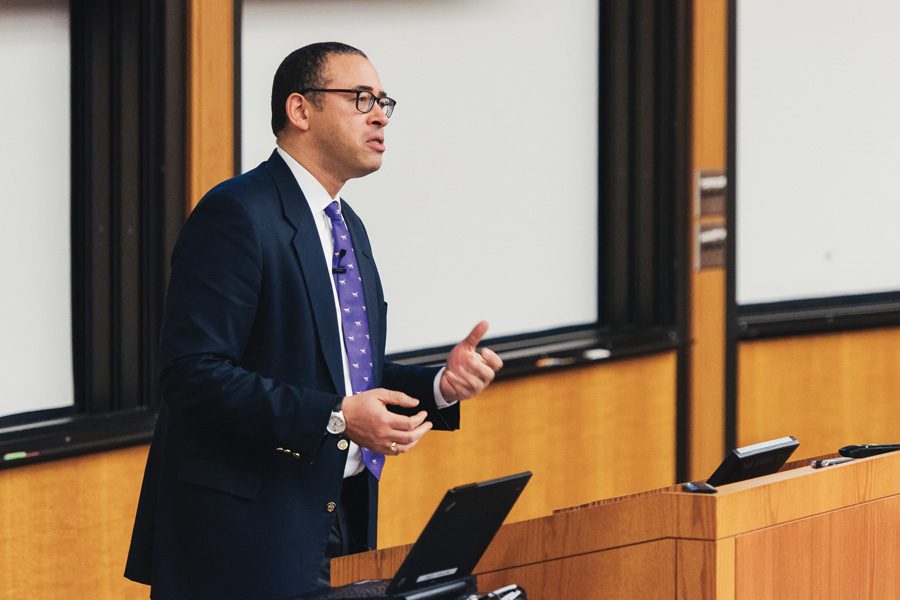Faculty Senate passes resolution encouraging mention of mental, physical health in syllabi
(Noah Frick-Alofs/The Daily Northwestern) Jonathan Holloway, who will become Northwestern’s provost in July, addresses Faculty Senate during a Q&A session. Holloway, currently the dean of Yale College, discussed his plans for NU and the importance of liberal arts education.
January 12, 2017
Faculty Senate passed a resolution Wednesday encouraging all faculty to include language regarding mental and physical health in their course syllabi.
The resolution, presented by Medill Prof. Karen Springen of the Student Affairs committee, provides faculty with an outline on how they can implement student well-being into syllabi.
“If you find yourself struggling with your mental or physical health this quarter, please feel to approach me. I try to be flexible and accommodating,” the resolution said as an example of how professors could be more receptive to the needs of students.
Bienen Prof. Bob Hasty, also a member of the Student Affairs committee, said the purpose of the resolution is to encourage, but not force, faculty to include similar wording.
Springen said the inclusion of supportive language in syllabi is “absolutely optional” but can help students feel more comfortable reaching out to professors. Such language allows students to see that professors care about them and are accessible, she said.
The Student Affairs committee met with Associated Student Government several times to discuss the resolution, consulting ASG President Christina Cilento and Executive Vice President Macs Vinson in the process, Springen said.
In addition to possible language regarding mental and physical health, Wednesday’s resolution also suggested including phone numbers for Counseling and Psychological Services and Student Assistance and Support Services.
Including these resources in course syllabi can allow students to see a professor as “someone who can actually be their advocate,” Hasty said.
Senate members also participated in a Q&A session with Jonathan Holloway, who will replace Dan Linzer as Northwestern’s provost on July 1. Holloway is currently the dean of Yale College, a position he will step down from after the third year of a five-year term.
In addition to discussing some of his own work on black intellectual history and expectations for NU, Holloway underlined the importance of protecting liberal arts education.
Answering questions from senators after the talk, he said using the liberal arts model — even within science, technology, engineering and mathematics fields — helps students of different backgrounds come together and tackle complex issues.
“If I have a single vision, it is that I believe, absolutely, that I’m going to support the ideal of the liberal arts,” he said.
Despite his position as a “humanist” and proponent of the liberal arts, Holloway said he has no plans to shift funding away from STEM or other fields. He added that funding would be used to support faculty where support is needed.
“I believe a rising tide lifts all boats,” he said. “And I’ve been given all the signals by the Board of Trustees that things are in a really good place right now.”
Email: jacobholland2020@u.northwestern.edu
Twitter: @jakeholland97



